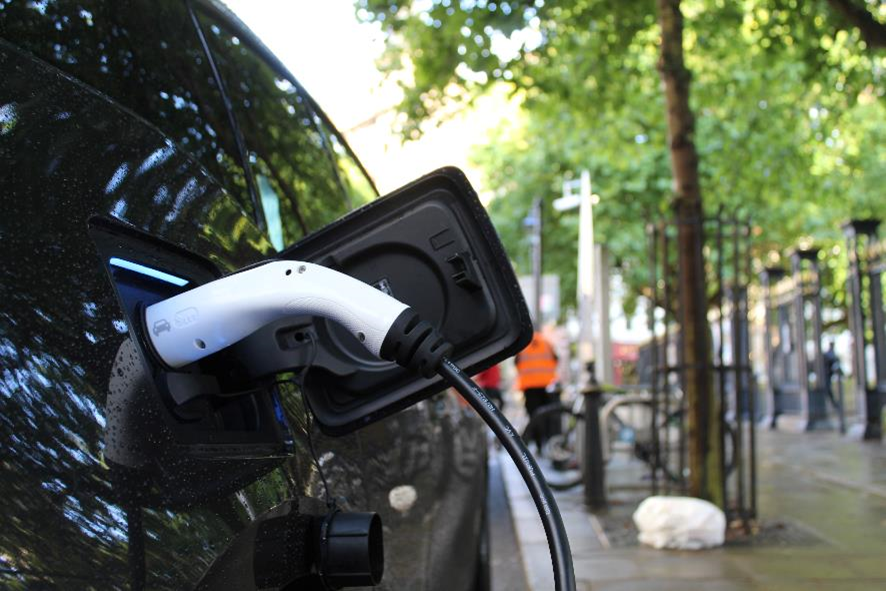The Government has launched a consultation to seek additional views on the design of the UK’s zero emission vehicle (ZEV) mandate for cars and vans.
Launched as part of the Net Zero strategy, the ZEV mandate will force manufacturers to sell a certain proportion of electric vehicles (EVs) in the lead up to 2030.
Through the ZEV mandate, manufacturers will have ZEV sales converted into ‘certificates’ and be required to hold a certain number of certificates at the end of each year in relation to the total number of vehicles they’ve sold. There will also be targets for CO2 emissions to regulate non ZEVs.
Fines will be issued to manufacturers that don't meet their targets.
The scheme will include provisions for the trading of certificates, which will allow manufacturers to buy and sell ZEV certificates between them. Connected entities (different manufacturing brands falling under the same overall business) are likely to be able to trade certificates with each other with minimal restriction, subject to competition law.
There will be two separate certificate systems – one for cars and one for vans – with no cross trading due to the differing stages and availability of zero emission technology for each vehicle type.
There are five key areas the Government is specifically consulting on:
- The level of ZEV uptake (trajectories)
- How certificates could be allocated and used
- The banking, borrowing and transfer of ZEV certificates
- The possibility of derogations and exemptions within the ZEV mandate
- How to regulate the non-ZEV portion of the fleet
In 2021 the percentage of all new cars sales in the UK that were fully zero emission reached a new record of 12%. On this basis the Government estimates that the range for the first year (2024) of the ZEV mandate will be between 20% and 30%.
The consultation document sets out the following preferred uptake strategy for cars:
![]()
A different trajectory for vans is being considered, with a lower requirement in the earlier years. The current market share of zero emission (ZE) light vans is uncertain, with the latest statistics, from 2020, showing around 2% of the new van fleet as ZE - approx. 5,700 vehicles.
The consultation document sets out the following preferred uptake strategy for vans:
![]()
Commenting on the technical consultation, BVRLA chief executive, Gerry Keaney, said: “The ZEV sales mandate is a vital part of the UK being able to reach its Net Zero targets. Its effective implementation will be the difference between the UK leading the way for decarbonisation or falling behind the rest of Europe. The consultative approach taken by the Department for Transport has been commendable and the BVRLA is pleased to see many of the association’s key considerations included within the plans.
“We welcome the acknowledgment that vans require a different trajectory to cars, which has been a cornerstone of the BVRLA’s engagement on this issue. In the face of the worst supply crisis the industry has seen for generations, trajectories need careful consideration and must be kept under review as the supply chain stabilises.
“The use of ZEV certificates, incentivising certain types of vehicles and different usage, is a crucial part of the delivery. Indeed, they will be a critical tool in alleviating the current supply issues and can ensure the flow of vehicles to channels such as rental and car clubs. The BVRLA will continue to work with the DfT to ensure those certificates are apportioned in a fair way and give due consideration to the distinct needs of fleets.”
If not fully zero emission, all new cars and vans sold between 2030 and 2035 must have significant zero emission capability (SZEC). The Government says the ZEV mandate uptake trajectory is "intrinsically linked" to transport’s CO2 emissions, meaning until that is set, the SZEC definition will not be set out. A detailed definition of SZEC will be published in due course, to ensure that all aspects of the framework deliver the required CO2 savings.
The consultation period began on April 7 and will run until June 10.
Responses will complement evidence already gathered from the Green Paper on a New Road Vehicle CO2 Emissions Regulatory Framework for the United Kingdom, as well as from ongoing engagement with stakeholders and reviews of International best practice. A Statutory Instrument and an impact assessment on the proposals will be published later in the year.























Login to comment
Comments
No comments have been made yet.